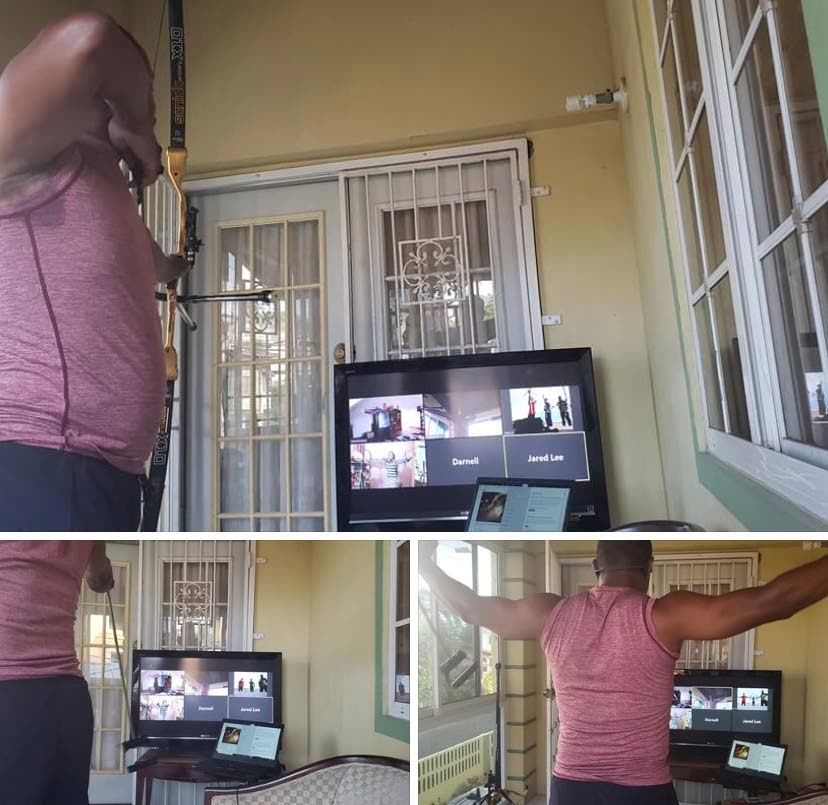The secret to building good habits

DEV RAMNARINE, FCCA
What is a habit? Is it something bad or something good? The dictionary defines a habit as a settled tendency or usual manner of behaviour. This is usually achieved through actions repeated over a period of time until it becomes second nature and doesn’t need much thought to do, maybe even resulting in a loss of focus in its absence. The length of time it takes for repeated behaviour to become a habit may be as little as 18 days – which is far longer than most of us have been in quarantine.
Habits can be formed intentionally or unintentionally; we can do the work and willingly develop habits or simply allow ourselves to fall into a pattern of behaviour determined by our circumstances. Our habits have the power to affect every aspect of our lives and so it is important that we become intentional about forming them, especially in our current environment. They have the potential to create or destroy what we are up to.
We must become more aware of our current habits – are they constructive or destructive, intentional or unintentional? We need habits; our brain thrives off automated actions as they free up mental resources that can be used for other tasks and therefore increase efficiency. It is also important to note that we aren’t born with certain behaviours and actions, they’re created, and we have the power to condition ourselves to adopt new habits that serve us. This is where intentional and unintentional habits are distinguished. We must also practice accountability by being aware of which habits move us forward or hold us back from achieving our goals.
On social media, I often come across posts complaining about the woes of quarantine life such as managing kids at home, having to share space, and overeating, just to name a few. A lot of this kind of communication has become the norm and is pervasive in almost all conversations we are having.
At the same time, there are others who post about learning new skills or developing old ones given the extra time they have due to the quarantine which they would not normally have. Here, there are two sides to the same coin. One group chooses daily to adopt a habit of complaining, making justifications for their actions that are not consistent with what they say they are out to create. Alongside creating unintentional habits, a significant level of internal inconsistencies is being created, resulting in feelings of anxiety, frustration, dissatisfaction, and resignation, hence being ineffective in accountability to themselves and their goals. However, if you choose to take the approach of the second group, each day and task will be met with a level of motivation that allows you to push forward and do the things will only be for your benefit.
According to American author and lecturer Werner Erhard, “accountability is the opportunity to live at choice rather than accidentally. Accountability is the opportunity to carve out a future rather than sit back and have it happen to you.” We need to be more aware of our habits and intentional in creating new ones by creating an accountability that is bigger than our current circumstances, one that drives us forward purposefully.
For example, I have created an accountability to myself to be healthy. This may seem simple enough, but this accountability is bigger than just me being a healthy person; it affects and drives everything I do daily from work to exercise, communication, and more. This requires me to be more aware of the choices that I make and the behaviours that I adopt every day as they have the potential to affect my life as a whole.
The drive to turn actions into intentional habits comes from being grounded in the impact of not fulfilling on that accountability – I put myself at a higher risk of getting sick which would hamper my ability to perform my work duties efficiently, creating a burden to those who would have to care for me. This may also cost me my resources as I would then have to spend time and money on doctor visits, picking up medication, etc. Therefore, I have taken actions that create intentional habits to fulfil my goal of being healthy. Again, being grounded in the impact of not being consistent in following through on my accountability keeps me moving forward.
Now, exercise was not always something in my wheelhouse. In fact, prior to the quarantine, I have never really intentionally exercised in years, far less habitually; I always had the perfect excuse not to. However, because of the accountability I created to my health, I have now cultivated that intentional habit of exercising. It was difficult at first, but every time I thought about giving up, I took a moment to get grounded again in the impact of not fulfilling on the accountability I created for my health. This, paired with sharing what I was up to with the people in my life, helped to drive workability as it inadvertently created a network of conversations around me that subtly supported me to be held accountable on my journey.
So, think about your own conversations and be present to how much you spend on negative actions that may lead to the formation of unintentional habits, then exercise your power to create intentional habits that serve you.
Dev Ramnarine is a Trinidad-born, internationally experienced accountant, auditor and business consultant with 17 years of experience elevating individual and organisational performance. He is a well-known speaker and has spoken to thousands of people around the world and he loves grounding his mastery by imparting knowledge. The content in this article will be explored in more detail in his upcoming book which will explore Quantum Leadership and a model he created, The Wheel of Workability.
https://medium.com/@devramnarine
https://www.linkedin.com/in/devramnarine/
(Content courtesy ACCA)


Comments
"The secret to building good habits"